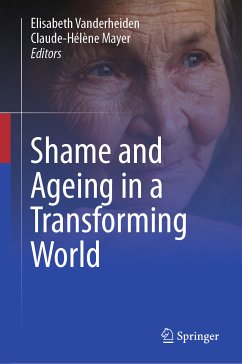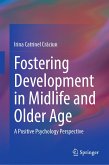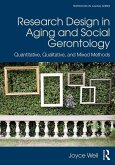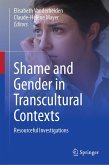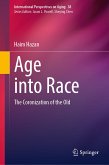The book provides a comprehensive overview of research and concepts related to shame and aging, in the context of social change, upheavals and paradigm shifts, from transdisciplinary, cultural and transcultural perspectives. Drawing upon the editors' previous works on the topic of shame, this volume discusses the contexts of shame and aging from theoretical, conceptual, and empirical perspectives. The toxic and stressful aspects of shame have been the focus of scientific analysis and discourse on shame and aging. This volume explicitly makes the dimensions of shame a resource for individuals, and collective transformation processes the object of research in the context of aging. It looks at emerging lifestyle, political, socio-economic and health contexts. It looks at how and why the frequency, intensity and handling of feelings of shame change over the course of life; the impact of shame on emotional well-being and mental health of older people; the impact of shame on social relationships and social engagement of older people in different cultures; the role of cultural values and norms in the development and processing of feelings of shame, especially in older people, and how these can be used for self-development; and the differences in the way older people in different cultures deal with feelings of shame and the way these can be used to develop effective strategies and techniques for older people to cope with shame. The editors and contributors thereby take cultural and gender aspects, as well as positive psychology and resource-orientated concepts, such as salutogenesis, resilience, happiness, fortitude, locus of control, faith- or strengths-based approaches into account and contextualize them against processes of social upheaval and transformation.
<
Elisabeth Vanderheiden, Claude-Hélène Mayer, and colleagues provide a profoundly informative discussion of "intersectionality" in shame and aging, focusing on the interactions of race/ethnicity, sexual orientation, age, disability, and digitalization of services. Importantly, the editors and authors propose developmentally appropriate solutions to support aging individuals coping with shaming experiences, aiming for improved health and well-being.
Elias Mpofu, PhD, DEd, MAPS, FARSOC, MAPS
Professor of Aging and Rehabilitation Sciences, University of North Texas, USA
Honorary Professor of Health Sciences, University of Sydney, Australia
Dieser Download kann aus rechtlichen Gründen nur mit Rechnungsadresse in A, B, BG, CY, CZ, D, DK, EW, E, FIN, F, GR, HR, H, IRL, I, LT, L, LR, M, NL, PL, P, R, S, SLO, SK ausgeliefert werden.

